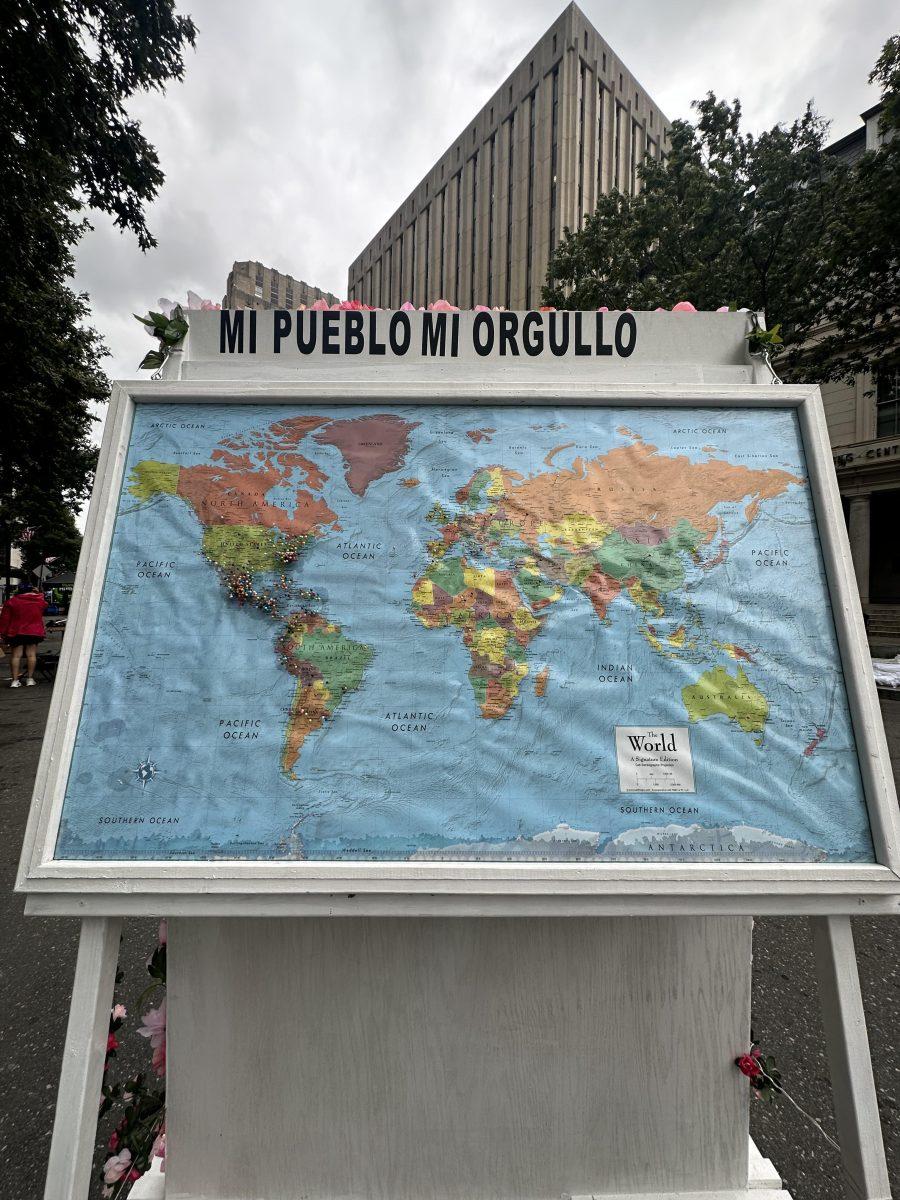The Book of Life is a children’s movie that can also be appreciated by adults because it touches on topics such as life and death, family, feminism and heroism. The movie, produced by Guillermo del Toro, the director of Pan’s Labyrinth, and directed by Jorge Gutierrez, was released Oct. 17, just in time for Halloween and the Day of the Dead. It is based on the Day of the Dead, the famous Mexican holiday for which families gather to celebrate and remember loved ones who have passed away. The film portrays the real meaning of the holiday and exposes some important aspects of the rich Mexican culture mixed with aspects of American culture.
The story begins with three children, Manolo, Maria and Joaquin who are best friends. Manolo and Joaquin are both in love with Maria and throughout the movie fight to earn her affection. Manolo grows up to be a professional bullfighter, staying true to the family tradition but he dreams of being a musician. Joaquin is a soldier and a hero like his father, and Maria is sent away to study abroad in Spain. La Muerte is a kind and fair female deity who rules over the Land of the Remembered, and Xibalba is her wicked estranged husband who rules over The Land of the Forgotten. Xibalba, who has grown tired of ruling the dreary Land of the Forgotten makes a bet with La Muerte that Maria will marry Joaquin while La Muerte bets she will marry Manolo, and whoever wins will rule the Land of the Remembered, a festive and happy resting place for the dead who are remembered by their families.
It is refreshing to see Latin American culture represented in Hollywood where it can reach and awaken a cultural curiosity in traditional American families. The movie is a dynamic mix of Mexican and American culture, making it relatable to a large audience and encompassing those who identify as Latino as well as American. The importance of family is a core value of all Latin American cultures and the movie shows how family ties even transcend death. Maria’s character gives a nod to feminism, and it is refreshing to see a strong, independent female protagonist in a children’s movie, especially in the traditionally male-dominated Mexican culture. She is a leader, falls in love on her own terms, isn’t afraid to speak her mind and faces the same dilemma as many women across the world: to do what is expected of you or to follow your heart.
The movie hosts a slew of themes including facing your fears, following your heart, doing the right thing, being yourself, sacrifice, love, life and death. These themes are presented in a comedic and somewhat simplified manner in order to convey the message to children, but adults can appreciate the emotional gravity these themes carry. I cried, I laughed, I learned and I greatly enjoyed this beautiful, animated story.
4.5 out of 5 stars




